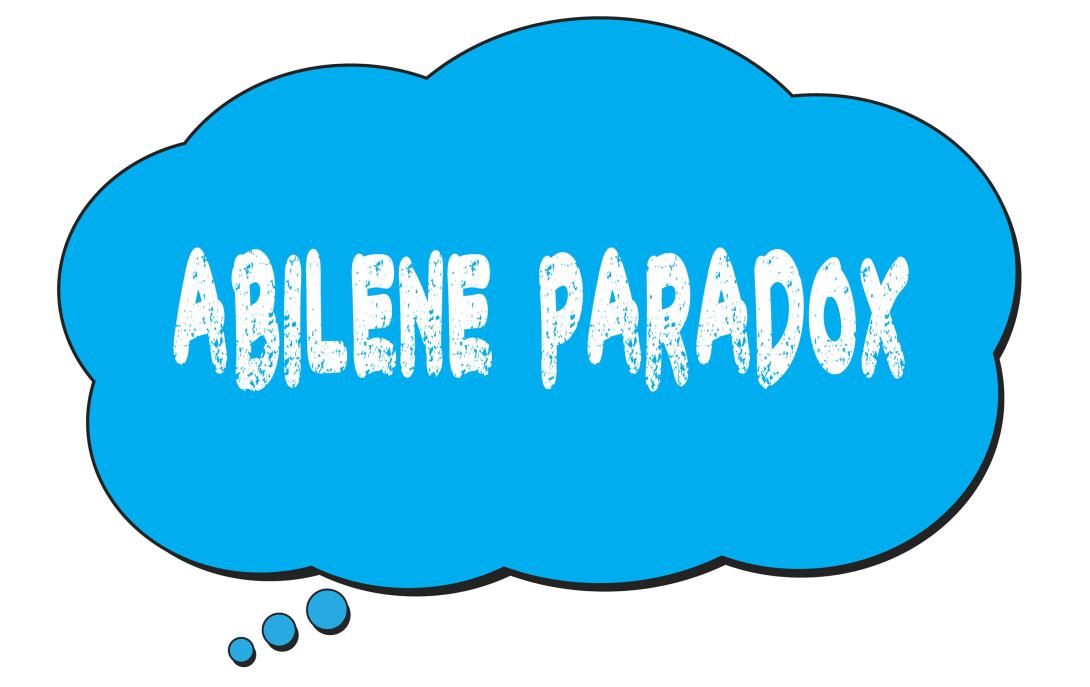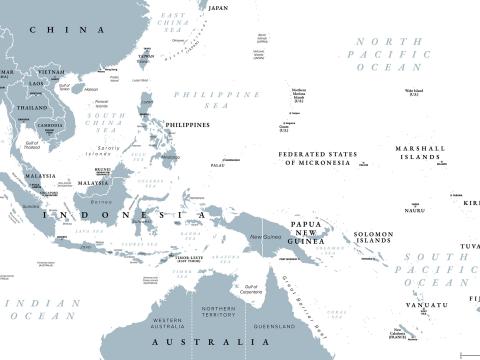Disruptive By Design: The Abilene Paradox
We’ve all encountered the Abilene Paradox at some point, but maybe we didn’t know the scholarly phrase for it. In short, most summarize it as management by agreement, whether for the best or worst. The following information includes learning resources, personal examples and lessons learned. Maybe it will even help with some holiday decisions, such as what to do, who to see, which gift to give, when to travel, where to go and why you might not be able to decide.
First, I offer some brief reading in Bea Carson’s work, “Avoiding Abilene: Breaking Out of Groupthink.” You may then wish to watch CRM Learning’s “Abilene Paradox, Communication Training, Organization Behaviors” video. Additionally, you’ll want to check into Study.com’s “The Abilene Paradox-Definition & Examples” and even FourWeekMBA.com’s “What Is The Abilene Paradox?
I’d also like to offer personal experiences of the paradox that resulted in bliss or bitterness. Eerily similar to the inspiration for the Abilene Paradox, I was an only child growing up along the Emerald Coast of Florida’s panhandle. My father “worked all the time” but wanted to treasure my childhood years, which meant spring through fall was crammed with as much beach time as possible. Even though we were convinced that we both loved the beach, at times, we floundered at the suggestion, trying to determine if we genuinely desired to go. At other times, pressing forward with the motions and motivation was easier. My father often confessed to me: “I’m only going because I thought you liked it, and I’ve got to entertain you and your buddies,” or “I’m there in case you get attacked by a shark,” along with, “I’ve got nothing better to do.” In the end, we both tired of the beach, and other interests took over: work, school, etc.
I consider us fortunate to have had frank discussions when we belted out genuine, abrasive remarks, but I also realize our trips to the beach created wonderful memories. My father and I both learned that the truth sets a person free, and neither wanted to lie to the other. I was a maturing teen who valued honesty, even with a slight sting. Today, I have little tolerance or interest in going with the flow to appease another individual, especially if they’re not genuinely into the idea.
For an organizational example of the Abilene Paradox, I once had a director who lacked any intent of allowing other individuals from the organization to attend a national professional development event. Surprisingly, I was an award recipient, and the event requested my attendance. I was not enthused about going based on leadership stance, and my director was in the same boat, but we both put on a happy face while at the event. Before agreeing to attend, I applied lessons learned and created conditions for acceptance. Although bold, my conditions were met, and we took a step in my preferred path.
The second organizational instance surrounded a situation similar to the CRM Learning dramatizations. My leadership, at times, has been laser-focused on new technology, capability, capacity and a gamut of other tactical advances even though most of the staff I’ve worked with couldn’t recall basic functions for Microsoft Excel functionality. Thus, I took a frank outlook on personnel development and training as a requirement before plunging into larger learning curves. At the same time, leadership remained distant and deaf to the actualities of the situation witnessed daily by the technician staff. I could be vocal and crush the whimsical dream solutions, but some days I fell into Abilene’s Paradox and just went with the flow to pacify leadership and the respective audience I aimed to please. At times, I worked in disbelief at the ignorance, but I was also realistic about the potential stupidity (by definition) at play, and leadership must have known the lies and reality would be found out eventually. A valuable lesson I learned was “honesty is the best policy,” and I hoped leadership’s web of deception would end soon.
There we have it—the Abilene Paradox. You’re now armed with resources and reflections on some of my past realities and lessons learned for application in future paths.
Disclaimer: Opinions, conclusions and recommendations expressed or implied within are solely those of the author. They do not necessarily represent the views of the U.S. Defense Department or any other U.S. government agency.
Jennifer A. Miller is the business operations manager for the Defense Health Agency’s director of staff at the Defense Health Headquarters. She is a certified project management professional, certified government financial manager, a certified defense financial manager with acquisition specialty, and a member of the American Society of Military Comptroller’s Washington Chapter, the Association of Government Accountants Northern Virginia Chapter and AFCEA.
www.linkedin.com/in/jammrellim





Comments